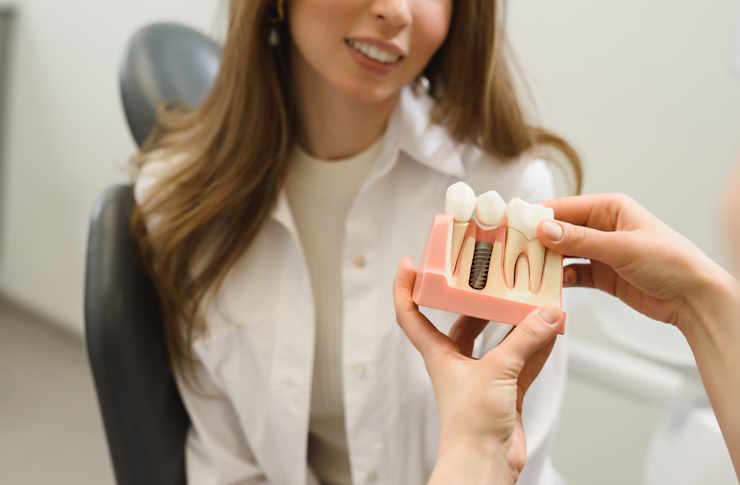Complete Guide to Dental Implants: Finding Quality Care at Reasonable Costs
Dental implants have revolutionized tooth replacement, offering a permanent solution that looks, feels, and functions like natural teeth. For those considering this life-changing dental procedure, understanding what implants involve, how to find qualified providers, and what costs to expect can be overwhelming. This comprehensive guide explores dental implant services, provides guidance on finding reputable clinics, and breaks down the costs involved to help you make informed decisions about your oral health investment.

What Are Dental Implant Services?
Dental implant services encompass a range of procedures designed to replace missing teeth with artificial tooth roots that support permanent or removable replacement teeth. The complete process typically includes several phases: initial consultation and planning, pre-implant procedures (like bone grafting if needed), implant placement surgery, abutment attachment, and finally, crown placement. Many dental clinics offer comprehensive care packages that include all these stages, while others may partner with specialists for certain aspects of treatment. Modern dental implant services often incorporate advanced technologies like 3D imaging, computer-guided implant placement, and various implant materials tailored to individual patient needs.
How to Find a Good Dental Implant Clinic
Finding a qualified dental implant provider requires thorough research and consideration of several factors. Start by seeking dentists who have specialized training in implantology or are board-certified in oral surgery or prosthodontics. Ask about their experience—how many implant procedures they’ve performed and their success rates. Reputable clinics should readily share before-and-after photos of previous patients and provide references upon request.
Technology matters significantly in implant dentistry; clinics with 3D imaging capabilities and modern surgical equipment often deliver more precise results. During initial consultations, assess whether the provider takes time to explain your specific condition, treatment options, and answers your questions thoroughly. The clinic’s cleanliness, staff professionalism, and transparency about costs and treatment timelines are also important indicators of quality care. Many excellent providers offer free initial consultations specifically for implant patients.
Understanding Dental Implant Cost Factors
Dental implant costs vary widely based on numerous factors. The complexity of your case plays a primary role—straightforward single-tooth replacements cost significantly less than full-mouth reconstructions. Geographic location heavily influences pricing, with urban centers and regions with higher costs of living typically charging more for the same procedures. The implant system used affects cost as well, with premium brands often commanding higher prices but potentially offering superior longevity and success rates.
Additional procedures like bone grafts, sinus lifts, or tooth extractions can substantially increase the overall expense. The dentist’s expertise level and specialization also factor into pricing—highly experienced oral surgeons or prosthodontists may charge premium rates but might deliver better outcomes for complex cases. Lastly, the material and fabrication method of the final restoration (crown, bridge, or denture) significantly impact the total cost.
Comparing Dental Implant Providers and Costs
When evaluating dental implant providers, comparing both qualifications and costs provides a clearer picture of value. Most patients benefit from obtaining multiple consultations to compare treatment approaches and pricing structures.
| Provider Type | Average Cost (Single Implant) | Benefits | Considerations |
|---|---|---|---|
| Private Practice Specialist | $3,000-$6,500 | Specialized expertise, personalized care, often more advanced technology | Higher costs, may not accept insurance |
| Dental School Clinic | $1,500-$2,800 | Significantly reduced costs, supervised by experts | Longer appointment times, multiple visits required |
| Dental Chains | $2,000-$4,000 | Standardized care, financing options, multiple locations | Variable provider experience, potentially less personalized treatment |
| Overseas Dental Tourism | $1,000-$2,500 | Substantial cost savings, combined with vacation | Travel expenses, follow-up care challenges, quality concerns |
Prices, rates, or cost estimates mentioned in this article are based on the latest available information but may change over time. Independent research is advised before making financial decisions.
Insurance Coverage and Financing Options for Dental Implants
Understanding how to manage dental implant costs is crucial since traditional dental insurance often provides limited coverage for implants, classifying them as cosmetic procedures. However, this landscape is changing, with more insurance plans now offering partial coverage, particularly when implants are deemed medically necessary. When evaluating insurance options, look specifically for policies that include implant coverage and understand their annual maximums, which typically range from $1,000-$1,500—well below the total cost of implant treatment.
For those without adequate insurance coverage, many dental offices offer financing solutions. These include in-house payment plans allowing costs to be spread over 6-24 months, often interest-free. Third-party financing companies specializing in healthcare expenses like CareCredit or LendingClub provide longer payment terms but usually charge interest. Some patients also utilize Health Savings Accounts (HSAs) or Flexible Spending Accounts (FSAs) to pay for implant procedures with pre-tax dollars, effectively reducing the overall cost.
Long-Term Value of Dental Implants
While the initial investment in dental implants exceeds that of traditional tooth replacement options like bridges or dentures, their longevity and functional benefits often provide superior value over time. Quality dental implants can last decades or even a lifetime with proper care, whereas bridges typically need replacement every 7-10 years and dentures require relining and eventual replacement. Additionally, implants help preserve jawbone health, preventing the bone deterioration and facial structure changes that occur with missing teeth. This preservation of oral health may reduce future dental problems and expenses, making implants a cost-effective long-term solution despite their higher upfront cost.
This article is for informational purposes only and should not be considered medical advice. Please consult a qualified healthcare professional for personalized guidance and treatment.




